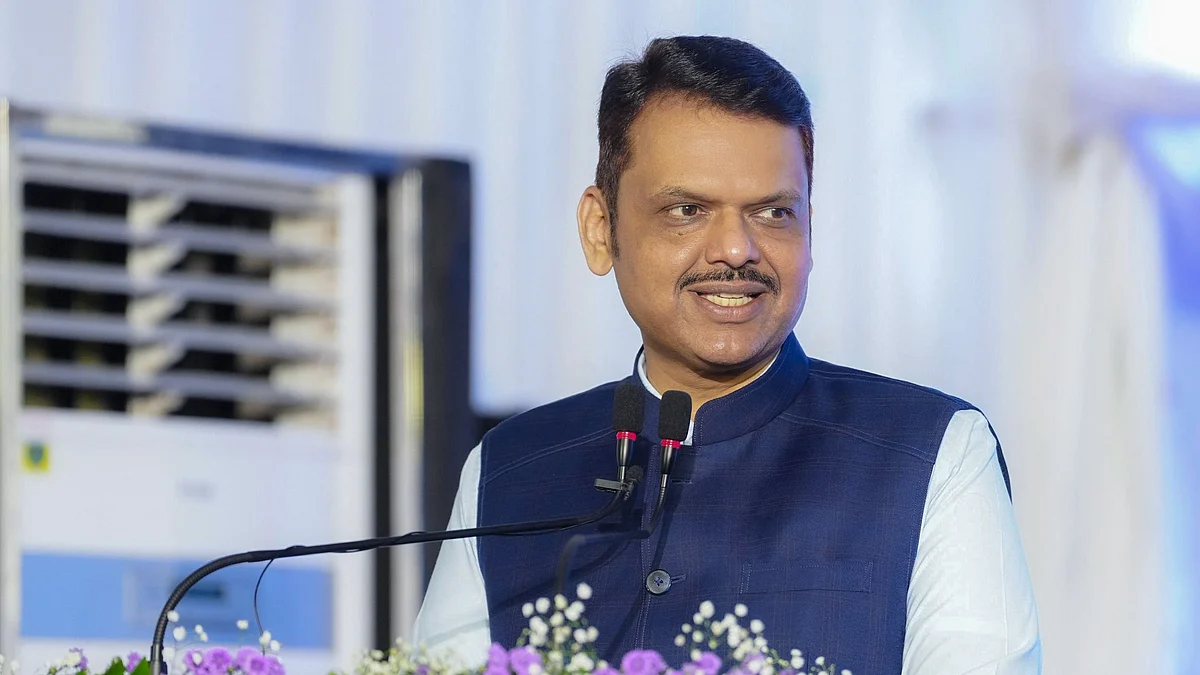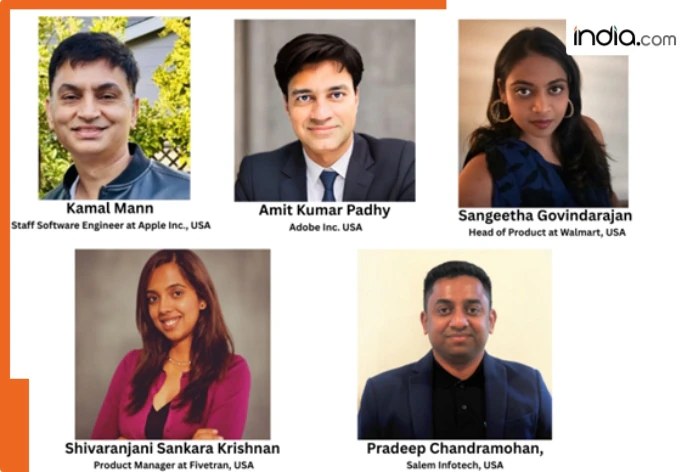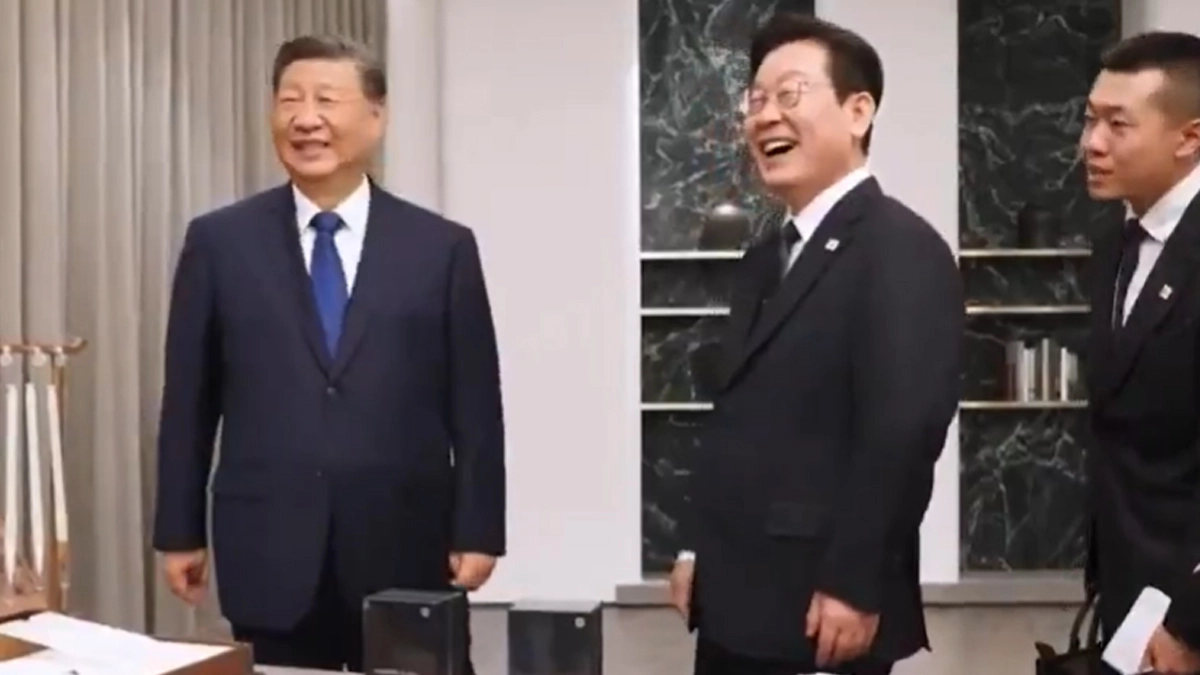Copyright Business Insider

Sam Altman's startup, Tools for Humanity, has raised hundreds of millions of dollars on a futuristic premise: using eyeballs to establish that someone is human in the age of AI. At the center of the plan is the Orb, a polished, volleyball-sized metal sphere that scans irises to generate a "World ID." The ID functions like a digital passport, distinguishing humans from machines on the internet. After stepping in front of the device's glowing gaze — thereby proving their humanity — verified users gain access to what the company describes as an interactive human network. That includes, among other things, a World app with its own "mini apps," a messaging system, and a digital wallet. After scanning their irises, users can claim tokens of the cryptocurrency Worldcoin, currently worth around 80 cents per coin. Investors like Andreessen Horowitz, Bain Capital, and Khosla Ventures have poured $240 million into the venture, giving it an estimated valuation of around $2.5 billion, according to PitchBook. The company has similarly ambitious goals: 1 billion users. Business Insider spoke to eight former Tools for Humanity employees, a former orb operator from Kenya, and a former head of operations in Mexico City who oversaw the operators scanning irises. While former employees said they were drawn to the company's mission and the chance to work on an Altman project, some questioned whether it had a clear long-term strategy. Experts also had concerns over the company's overall viability in a crowded marketplace for both payment products and identification tools. "I don't see a sort of killer use case that they've really figured out and will drive major traction for them," Nick Maynard, the vice president of fintech market research at global tech strategist firm Juniper Research, told Business Insider. "There needs to be a real purpose to exist, and that isn't super clear as of yet." So far, the company says it has verified around 17.5 million people — a little under 2% of its target. The push for growth comes as it faces increasingly fierce regulatory headwinds globally, as well as ethical concerns over its collection of biometric data. The company says it has Orbs in over 20 countries, from Mexico to South Korea. It has been barred, halted, or investigated in many countries, like Spain, India, and Indonesia. Last year, German authorities investigating the company determined that its data protection measures "would not be sufficient to implement an appropriate level of security with regard to cybercriminals or state attackers." (The company said it was appealing that decision, which is on hold as regulators evaluate World's new technology.) In China, the Ministry of State Security recently warned that collecting iris data for crypto could pose a national security threat. In October, agencies in three countries took regulatory action. The National Privacy Commission in the Philippines issued a cease-and-desist order to stop scanning eyeballs because it violated the country's data privacy act; Colombian regulators ordered it to immediately cease operations and delete data; and officials in Thailand raided iris scanning locations and arrested suspects "for operating an unlicensed digital asset business." The company said it is appealing the decision in Colombia. In a statement, a Tools for Humanity spokesperson told Business Insider that, "World was designed for every human, which is why we are proud to have launched on multiple continents, spanning fully connected urban centers to remote rural areas." "This approach enables the project to reflect the diversity and richness of a truly global human network," the spokesperson added. "As AI use cases continue to grow, many experts agree that adding a proof of human layer to the internet is increasingly important to preserve trust online." However, without access to the world's most populous countries — and as international regulators and officials ring alarm bells over iris-scanning practices and data collection — its ambitious goals may be increasingly difficult to reach. "Fundamentally, if it continues to experience those regulatory issues," Maynard said, "then scale will be an impossible task." 'Sam had this very simple idea' Launched in 2019, Altman envisioned World as a way to protect against a growing problem: the proliferation of technology that mimics human speech, behavior, and thought. As AI becomes increasingly lifelike, the thinking goes, people need a way to make sure they're interacting with other humans, not bots. Related stories Business Insider tells the innovative stories you want to know Business Insider tells the innovative stories you want to know Part of this need is in response to the race by buzzy AI companies, like Altman's OpenAI, to create models that can convincingly replicate human nature. "He is creating the disease, but he also wants to create the cure," one former employee, who was involved with expansion in Latin America, told Business Insider. At one point, there were discussions of integrating World with OpenAI to verify the humanness of those using its services, according to two former employees. "Sam had this very simple idea," Alex Blania, Tools for Humanity's CEO, said on a 2022 podcast: launch a token "simply for being a human." By doing that, Blania said, they could create a "really, really large network," of actual people — and, ultimately, "a network-based business." They may tout the idea as simple, but the corporate structure is more complex. Tools for Humanity is a for-profit technology company, with headquarters in San Francisco and Munich; it develops technology for World like the Orb. The World project — the "real human" network — is controlled by the Cayman Island-based World Foundation. The foundation is the sole director of the British Virgin Islands-based World Assets Limited, which oversees the distribution of Worldcoin tokens. Altman and Blania, a young German theoretical physicist who was previously a graduate student in Southern California, co-founded the companies, after Altman pitched him on the idea over cappuccinos. The overarching goal, Blania said on the 2022 podcast, was scaling as much as possible. "Everything is optimized around that," he said. "How do we get to this billion-user number as quickly as we can?" A billion eyeballs In its quest to reach that goal, the company has relied on outside funding, taking in nearly a quarter of a billion dollars over four rounds of funding, according to Pitchbook. It has expanded into the UK and the US, with eye-scanning stores popping up from London to Los Angeles. It announced a pilot program with Match Group to verify Tinder users in Japan and partnerships with companies like Stripe, Visa, and the gaming company Razer. Reporting in Semafor in June also said that Reddit was in talks with Tools for Humanity to use its verification services. The Orb rollouts are expensive. Blania said last April that the company had already spent millions of dollars to develop and bring them to market. Two former employees said that each device had cost thousands of dollars to produce. Even so, five people said the Orbs often faced connectivity issues in the field. Another concern was revenue, former employees said. "That was the first question we got from regulators, like, 'This sounds great, but how do you make money?'" said the former employee involved with Latin America expansion. Maynard, of Juniper Research, agreed. "Until they have that scale and the platform sort of becomes self-sustaining then they're going to be burning through cash," he said. The company doesn't charge users to access its platforms, and Blania has said that the company won't become a data broker. Still, there are some potential revenue streams: Last spring, the company introduced World ID fees, a charge for when apps use the company's services. And it introduced a community operator program that allows people to rent or purchase their own Orbs. A former employee said that the company also collected sequencer fees — the charge to process transactions — for World's blockchain, called World Chain. This person, who had knowledge of the financial impacts of Worldcoin, said he did not believe those fees alone would generate profit. The former employee said the company's financial future depended on continued investor interest. "As long as VC money is flowing in, and there's VCs that see value in that," this person said, "it will stay afloat." Multiple people said that while the company's services could be useful in the future, they questioned what problem the company was trying to solve today. They've "still yet to provide an actual benefit for people besides the fact they're giving the cryptocurrency," said a former Germany-based employee. Martha Bennett, vice president and principal analyst at the global research and advisory firm Forrester, who has previously been critical of the project, was more blunt: "I actually have trouble seeing it as a business," she said. "There isn't an incentive around buying or leasing an Orb other than making money off of it by scanning loads of eyeballs, and for the users, it's to get some more coins." Related stories Business Insider tells the innovative stories you want to know Business Insider tells the innovative stories you want to know Meanwhile, crypto experts who spoke to Business Insider raised questions over the long-term viability of Worldcoin, which has less than 0.1% of Bitcoin's roughly $2 trillion market cap. "It's really just hard to judge something that's a crypto with a $2 billion market cap as anything other than experimental or a fad," said Nikhil Bhatia, a finance professor at the University of Southern California who studies cryptocurrency. "Worldcoin is not a contender in any way for currency or an asset relative to the dollar or Bitcoin." A world of trouble Tools for Humanity's model involved working with independent contractors across the world who oversaw Orb scanning. These contractors were paid on a commission basis for each user they signed up, often in Worldcoin, according to former employees and people involved with iris scanning. Luis Ruben De Valadéz worked as head of operations for a company in Mexico that contracted with Tools for Humanity, and he said he helped open seven stores across Mexico City. Tools for Humanity covered the rent for up to a year and reimbursed the company monthly with Worldcoin; De Valadéz said his employer was on the hook financially for all other costs. He relied on family and friends to raise around 100,000 pesos, about $5,400, for those expansion efforts. (He said that some of these funds were ultimately returned if not used.) De Valadéz said that while he had a largely positive experience with the company, "it would have been nice to have some more support on the financial side of things for the operators since we're the ones operating and in the field." Four former employees described the company's early strategy in some countries as asking for forgiveness, not permission — reminiscent of the fast-growing, scandal-plagued early days of Uber, where dozens of current and former Tools for Humanity employees previously worked. Early on, the company appeared to launch in places where people would be attracted by the promise of free crypto. During a recent city council session in Brazil, Bruno Bioni, founding director of the digital rights nonprofit Data Privacy Brazil, said that many people scanning their irises were socioeconomically vulnerable and incentivized by the financial compensation — a sentiment echoed by former workers who spoke to Business Insider. These sources said it was common for users to exchange their tokens for hard currency following the scans. In Latin America, currency exchanges where cash was given for the crypto often popped up around the Orb stations, according to four people and photos viewed by Business Insider. Similar scenarios unfolded in Kenya, said an Orb operator who worked there. (In May, Kenya's High Court declared World's operations unlawful and ordered it to permanently delete biometric data.) The company changed its policies in response to these crypto exchanges, two people said, so that users wouldn't receive crypto until at least a day after the iris scans. The Tools for Humanity spokesperson told Business Insider that the company engages in ongoing discussions with regulators, and works closely with stakeholders, in the countries where it operates. The former employee involved with Latin American expansion also said that their team prioritized talking to regulators to explain the project and privacy policies. "Prior to launching in a market," the spokesperson said, "World conducts extensive research and analysis to ensure that the project's operations and services are compliant with applicable rules and regulations." There were other problems. In Argentina, unaffiliated third-party organizers bused people to iris scanning locations to receive crypto payments, according to former employees and local news coverage. In some cases, these third parties handed out phones to people prior to the scans and then took them back after verification, according to two people. Local media in the Argentine province of Chaco reported that authorities stopped a bus in May 2024 carrying around 55 people returning from Buenos Aires after having their irises scanned in exchange for money. According to reports, police said the passengers told them they had traveled voluntarily and received payment. "They started in countries quite often where people really are desperate for money," Bennett said. She questioned why it often opted to roll out in developing countries. "It was easy to ramp up the numbers, easy to get eyeball scans to train their models further," she said. The company publicly touts millions of users, but the Germany-based employee, who saw a dashboard with Orb statistics, was skeptical. "A lot of those people," he said, "are random people in Latin America who wanted 50 bucks and deleted the app."



